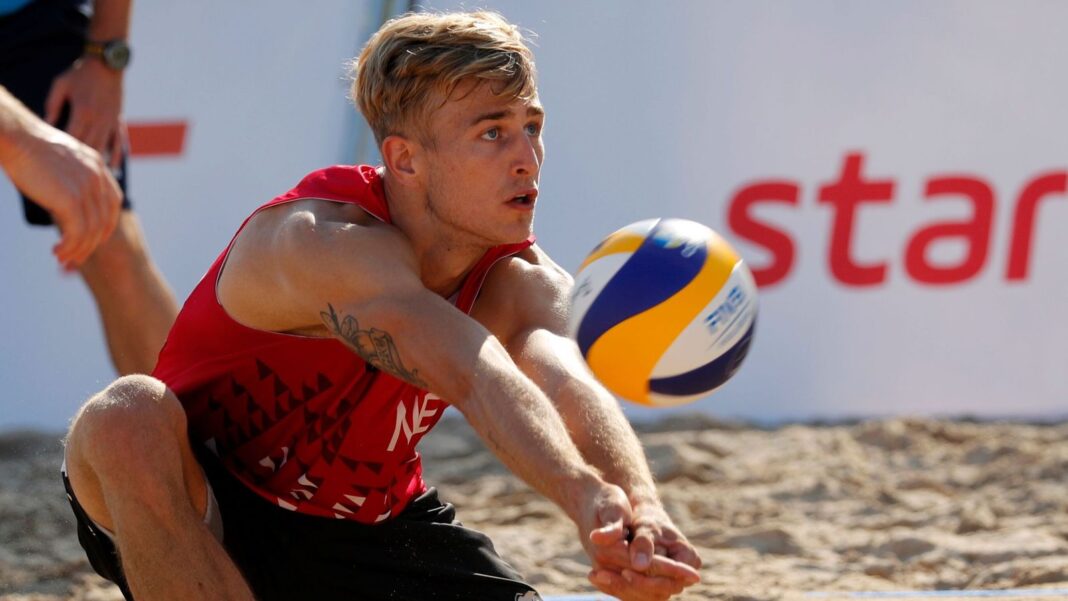Dutch Olympic bosses have defended their decision to pick a volleyball player – who raped a British girl.
Steven van de Velde was jailed for four years for raping a British girl in 2016.
Reports at the time said he got to know the girl online, before attacking her.
Van de Velde. Pic: AP
After serving part of his jail term in England, he was sent back to the Netherlands where his sentence was adjusted according to Dutch laws.
The Dutch volleyball federation (Nevobo) said Van de Velde, 29, was “proving to be an exemplary professional and human being and there has been no reason to doubt him since his return”.

Keep up with all the latest news from the UK and around the world by following Sky News
They added he had their “full support” and after his release had sought professional counselling.
Meanwhile, the country’s Olympic committee said Van de Velde had met all the qualification requirements for the Olympic games “and is therefore part of the team”.
The statement added both the federation and the Netherlands Olympic committee, as well as the international volleyball federation, “rely on the opinions of experts who consider the chance of recidivism nil.”
Velde himself, in the statement released by Nevobo, said: “I understand that in the run-up to the biggest sporting event in the world, this can attract the attention of international media. I cannot reverse it, so I will have to bear the consequences. It has been the biggest mistake of my life.”
In a statement to Sky News, The Survivors Trust said: “The fact that Van de Velde is allowed to continue his career after admitting ‘the biggest mistake of his life’ is further endorsement of the shocking toleration we have of child sexual abuse.
“The rape of a child was planned, calculated involving international travel and will undoubtedly cause his victim lifelong trauma, irreversibly changing the course of her life.
“As a society we have to start embracing a zero-tolerance approach to this heinous and costly crime.
“His lack of remorse and empathy for his victim is chilling and the allowance of his colleagues and the Olympic committee to promote him to a young audience as a sports person to look up to and therefore by implication is deeply disturbing.”







